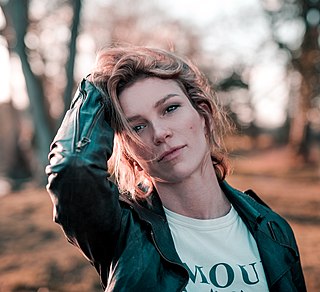A Quote by Terence McKenna
We are like coral animals in a vast reef of excreted technological material that is wired for solid state data transfer.
Related Quotes
But technology is the real skin of our species. Humanity, correctly seen in the context of the last five hundred years, is an extruder of technological material. We take in matter that has a low degree of organization; we put it through mental filters, and we extrude jewelry, gospels, space shuttles. This is what we do. We are like coral animals embedded in a technological reef of extruded psychic objects. All our tool making implies our belief in an ultimate tool. That tool is the flying saucer, or the soul, exteriorized in three-dimensional space.
Are coral reefs growing from the depths of the oceans? ... [The] reply is a simple negative; and a single fact establishes its truth. The reef-forming coral zoophytes, as has been shown, cannot grow at greater depths than 100 or 120 feet; and therefore in seas deeper than this, the formation or growth of reefs over the bottom is impossible.
When you are insecure, it turns people off. To spend money, people have to give away a part of their security. When they make the transfer of money to you, they have to feel solid; they have to feel they are getting something that will make them more, because they are paying out and becoming less right now. If you are solid and contained and secure, it helps them feel solid, so they transfer their cash more readily.
The really valuable thing about documenting coral bleaching is that it is this straight, very direct visual indicator of how hot the oceans are getting. If the temperature of the water passes a certain threshold, the corals turn white. It's that simple. There's nothing natural about the cycle that's going on right now. In 2016, we lost 29 percent of the Great Barrier Reef. So 29 percent of the Great Barrier Reef died in a single year, because the water was hot.
Working in the Arctic is definitely colder, but not necessarily harder. There were different challenges. And in many ways, Chasing Coral was even more of a struggle for me personally. And more of a struggle to capture. Glaciers right now are changing very consistently. The interesting thing that we realized with Chasing Coral was that the corals reefs. They can go from living to dead in two months. And if you're not there at the right time to capture that before and after, you just show up and it's a dead reef. So it was a challenge to be at the right place at the right time.

































